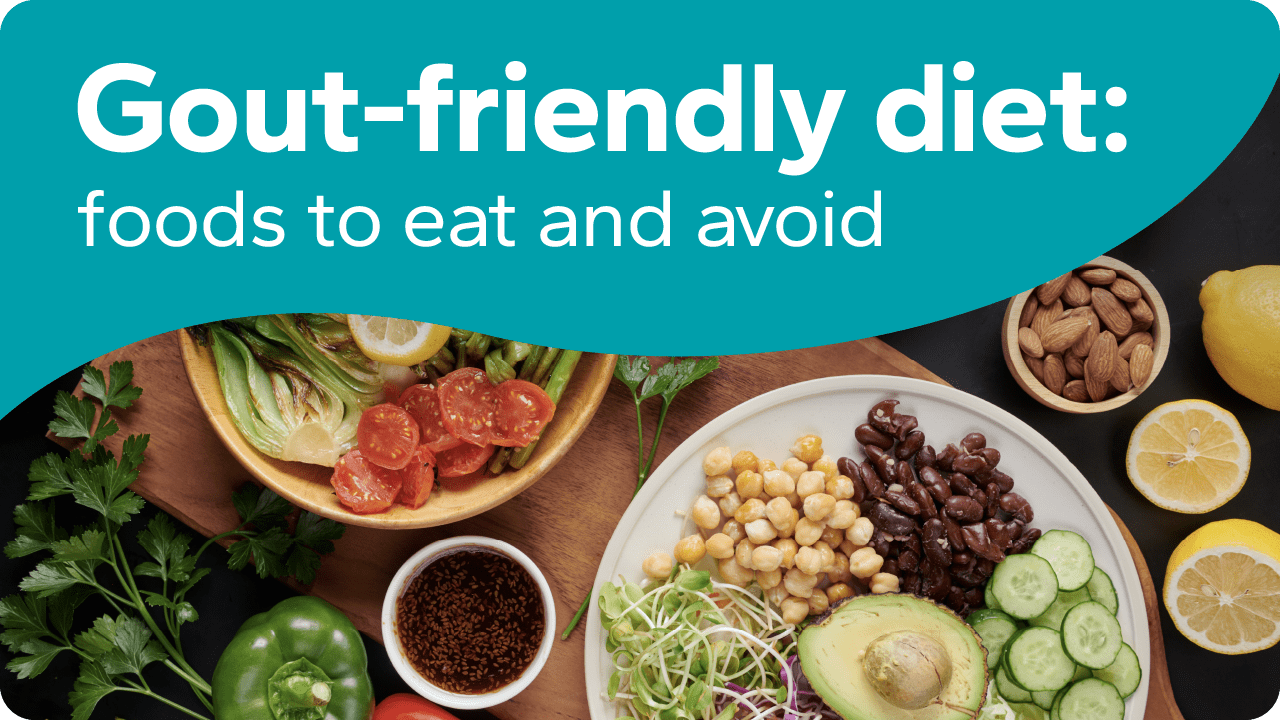10 Best Diet Tips for Gout Sufferers

Gout is a painful and chronic form of arthritis caused by a buildup of uric acid in the bloodstream. When uric acid levels become too high, sharp crystals can form in the joints, often leading to sudden pain, swelling, and inflammation. The big toe is commonly affected, but gout can impact other joints as well. While medication plays a vital role in managing the condition, dietary changes can significantly reduce the frequency and severity of flare-ups. Making the right food choices can help lower uric acid levels and support long-term joint health. Below are ten of the best dietary strategies for individuals living with gout.
Choose Low-Purine Foods
One of the most important dietary changes for gout sufferers is to reduce purine intake. Purines are natural substances found in certain foods that break down into uric acid in the body. High-purine foods can trigger painful gout attacks by increasing uric acid levels. Foods like red meats, organ meats (such as liver), sardines, shellfish, and anchovies are particularly high in purines and should be limited or avoided. Instead, opt for low-purine alternatives such as vegetables, fruits, whole grains, low-fat dairy products, and eggs. These foods help reduce uric acid buildup and are gentle on the joints.
Hydrate Generously
Drinking plenty of water is crucial for gout management. Staying well-hydrated helps the kidneys flush out excess uric acid through urine, reducing the risk of crystal formation in the joints. Aim for at least 8–12 glasses of water daily, and consider including hydrating foods like cucumbers, watermelon, and oranges in your diet. Avoid sugary drinks and sodas, as they can increase uric acid production and worsen symptoms. Herbal teas and lemon water are also excellent alternatives to stay hydrated while supporting joint health.
Limit Sugary Foods and Beverages
Excess sugar, especially fructose, a type of sugar found in sweetened beverages and processed snacks, can contribute to high uric acid levels. Soft drinks, packaged fruit juices, and candy can all trigger gout attacks if consumed regularly. Even some “natural” sweeteners like honey and agave syrup contain high levels of fructose. Instead, satisfy your sweet tooth with whole fruits like apples, cherries, and berries, which provide natural sugars along with fiber and antioxidants that fight inflammation.
Moderate Alcohol Intake
Alcohol, especially beer and hard liquors, can interfere with the body’s ability to remove uric acid. Beer is particularly problematic because it contains purines from brewer’s yeast, which can elevate uric acid levels rapidly. Although moderate consumption of red wine may not be as harmful, it’s still best to limit alcohol intake, especially during a flare-up. For gout sufferers, avoiding alcohol altogether can significantly reduce the frequency and severity of attacks.
Incorporate Cherries and Berries
Cherries, especially tart cherries, have anti-inflammatory and antioxidant properties that help lower uric acid levels and reduce the risk of gout flare-ups. They contain compounds known as anthocyanins, which combat inflammation and support joint health. Studies have shown that eating cherries regularly may reduce gout attacks by as much as 35%. Other berries like blueberries, raspberries, and strawberries also contain antioxidants that fight inflammation and can be enjoyed in smoothies, salads, or snacks.
Embrace Plant-Based Proteins
While protein is essential for overall health, many animal-based proteins are high in purines. Shifting to plant-based protein sources can help reduce uric acid levels without compromising nutrition. Foods like lentils, beans, chickpeas, quinoa, tofu, and nuts are excellent sources of protein that are also low in purines. These foods support muscle strength, aid in weight control, and reduce the burden on your joints all while keeping gout in check.
Add Vitamin C-Rich Foods
Vitamin C is known to help lower uric acid levels in the blood by improving kidney function. Consuming foods rich in Vitamin C can offer both preventive and therapeutic benefits for gout sufferers. Include citrus fruits like oranges and lemons, along with bell peppers, strawberries, guavas, and broccoli in your meals. Not only do these foods help reduce uric acid, but they also strengthen the immune system and promote overall health.
Maintain a Healthy Weight
Being overweight increases the risk of developing gout and can also make existing symptoms worse. Excess body fat leads to increased uric acid production and reduces the body’s ability to eliminate it efficiently. Losing weight through a balanced diet and regular exercise can dramatically reduce the frequency of gout attacks. However, it’s important to aim for gradual weight loss through sustainable lifestyle changes rather than crash diets, which can spike uric acid levels.
Avoid Crash Diets and Fasting
Rapid weight loss from crash diets or prolonged fasting can trigger a gout attack by causing the breakdown of muscle tissue, which releases purines into the bloodstream. These purines increase uric acid levels, leading to crystal formation in the joints. Instead of extreme dieting, focus on a consistent eating schedule with balanced meals and healthy snacks. Incorporate moderate exercise like walking or swimming to support your weight loss goals safely.
Use Low-Fat Dairy Products
Low-fat dairy products have been shown to help lower uric acid levels and may even reduce the risk of gout attacks. Milk, yogurt, and cheese provide high-quality protein and calcium without the purine content found in many animal-based foods. Greek yogurt is especially beneficial due to its high protein content and probiotics, which support gut and overall health. Choose plain, unsweetened options to avoid added sugars that can negatively impact gout symptoms.
Book Uric Acid Serum Test Online via Instacare
Final Thoughts
Gout is a painful condition, but with proper dietary management, its impact can be greatly reduced. By choosing low-purine foods, staying hydrated, embracing anti-inflammatory fruits, and shifting to plant-based or low-fat protein sources, gout sufferers can prevent flare-ups and support long-term joint health. Every small dietary change can add up to major relief. Remember, it’s always best to consult a healthcare provider or dietitian for personalized advice tailored to your medical needs and lifestyle. Making the right food choices today can lead to a pain-free tomorrow.



